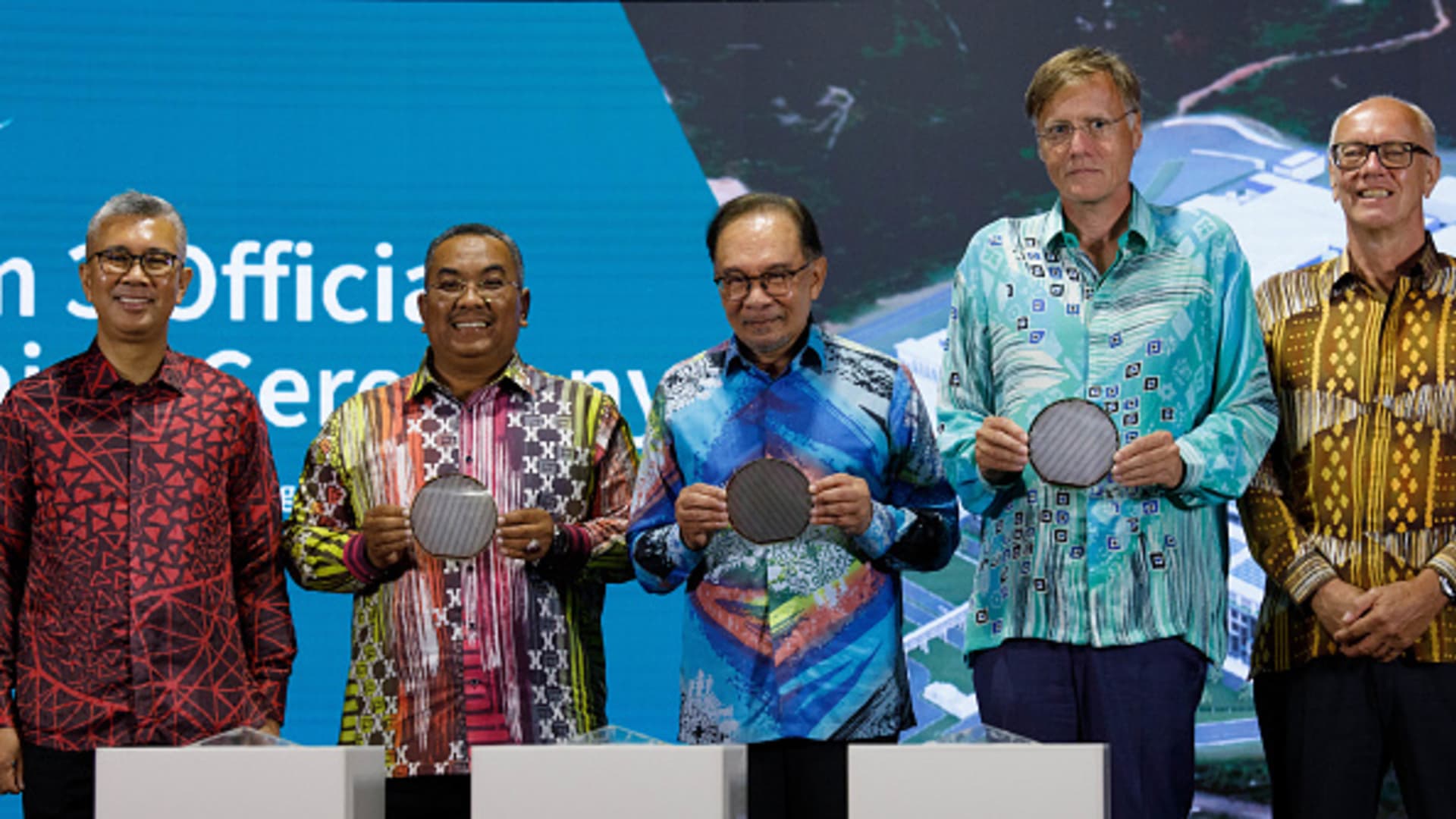Zafrul Tengku Abdul Aziz, Malaysia’s international trade and industry minister, from left, Muhammad Sanusi Md Nor, chief minister of Kedah state, Anwar Ibrahim, Malaysia’s prime minister, Jochen Hanebeck, chief executive officer of Infineon Technologies AG, and Rutger Wijburg, chief operating officer of Infineon Technologies AG, during the opening of the company’s site of a new semiconductor complex in Kulim, Malaysia, on Thursday, Aug. 8, 2024.
Bloomberg | Bloomberg | Getty Images
Malaysia’s Prime Minister Anwar Ibrahim made the case for his country’s attractiveness as a chipmaking hub at the opening ceremony of Infineon’s semiconductor fabrication facility in Malaysia’s Kulim district.
“Politically, we are stable, clarity of policies, I mean, energy transition, industrial policy, a master plan, and then even semiconductor policies,” he told CNBC’s JP Ong.
“This has helped generate more interest from the investors,” Anwar said, adding that Infineon’s participation has demonstrated “in a big way” the company’s confidence in the country’s overall semiconductor ecosystem.


On whether Malaysia can generate sufficient talent to supply the growing sector, the prime minister assured that the country’s professionals and students have the capacity to do so.
“Our role in the government is to facilitate the process, to make sure that we disburse adequate funds for that purpose,” Anwar said.
Anwar last September said that the government is looking to attract skilled Malaysians to return and contribute to the country. The country has ambitions to train and upskill 60,000 Malaysians to become highly skilled semiconductor engineers over the next decade.















